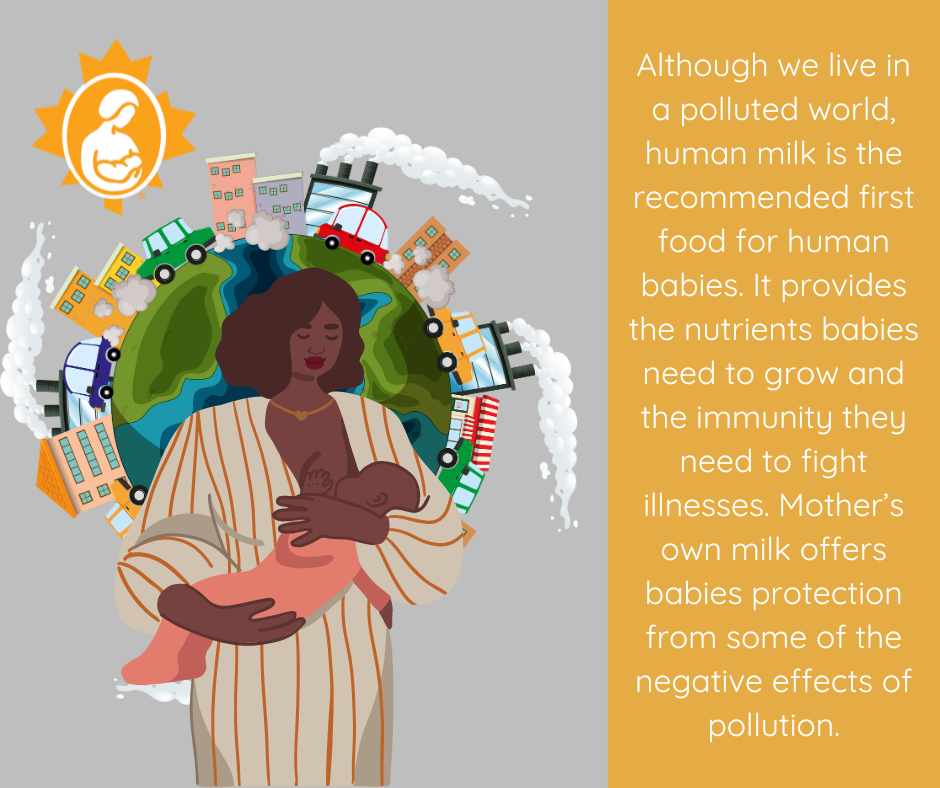
If you are a nursing parent you may be wondering about possible toxic chemicals in your milk and how they might affect your nursing baby.
Although we live in a polluted world, human milk is the recommended first food for human babies. It provides the nutrients babies need to grow and the immunity they need to fight illnesses. Mother’s own milk offers babies protection from some of the negative effects of pollution:
- Toxic chemicals may increase cancer rates. Breastfed babies have lower rates of some cancers.
- Toxic chemicals can negatively impact a baby’s brain development. Breastfeeding positively impacts your baby’s brain development.
- Toxic chemicals may damage a baby’s immune system. Breastfeeding supports the development of a healthy immune system.
There are chemicals all around us, many of which, in high enough concentrations, can harm humans. These include persistent organic pollutants (POPs), pesticides, heavy metals, and other contaminants. They are in the air we breathe, the food we eat and the water we drink. It is impossible to know where all of the chemicals in our bodies come from.
There are differences in how these various types of chemicals and specific chemicals behave in our bodies. In general, most chemicals that are found in our bodies are also found in our milk. Some transfer into milk more easily than others.
It is important to remember that toxic chemicals are found in formula.
- They are in the water, cow’s milk and soybeans used to make infant formula.
- Formula contains much higher levels of lead than is found in human milk.
- From time to time there are manufacturer recalls when dangerous chemicals are found in infant formula.
Because we live in a polluted world, babies are already exposed to chemicals in their mothers’ bodies in utero. It is impossible to prevent babies from this exposure.
With all of that said, breastfeeding continues to be the healthiest and recommended way to feed your baby. If you live in a particularly contaminated environment, consult with a healthcare provider or public health about what you can do to minimize exposure.
If you found this helpful, please consider making a donation.
References
International Breastfeeding Centre. (2021). Toxins and Infant Feeding.
